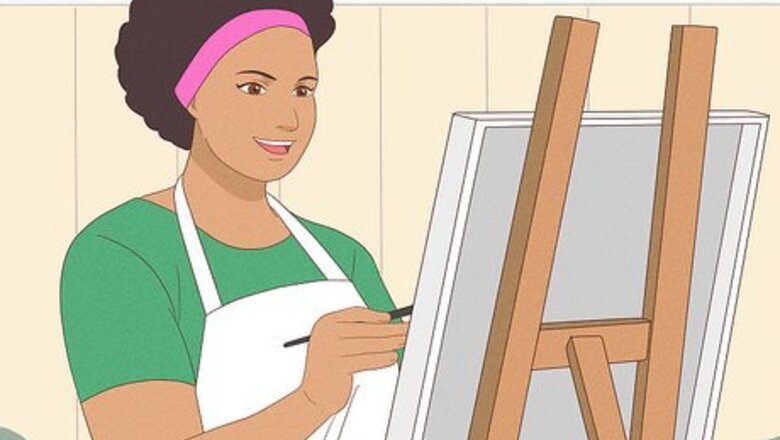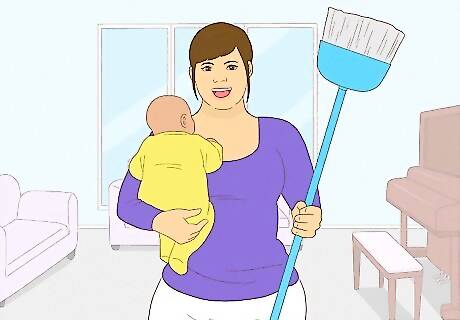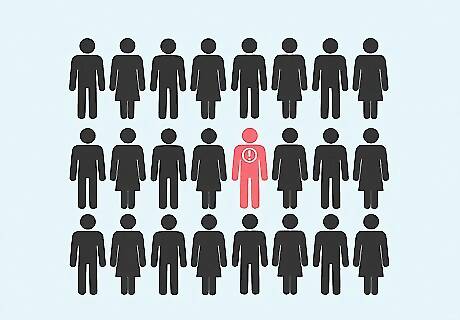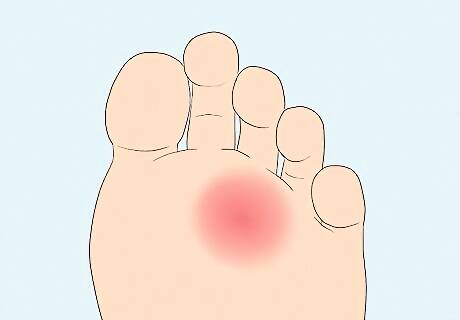
views
- Long second toes supposedly indicate that a person is clumsy, athletic, diplomatic, communicative, or creative.
- A second toe that’s longer than your big toe is known as Morton’s toe.
- Morton’s toe is normally mundane, but it can cause pain if it contributes to Morton’s neuroma, which is a nerve condition in the foot.
Popular Big Second Toe Superstitions

You’re naturally creative and enthusiastic. According to some legends, a big second toe is representative of the “Celtic foot.” People with a Celtic foot are thoughtful, dynamic, and innovative. Story goes that if you’ve got a Celtic foot, you’ll have a productive career in the arts. Do you happen to be a gifted singer, painter, or designer? Or maybe at work, you just get the sense that you think outside the box more than your peers? According to legend, your second toe might just be the reason for that.

You’re a phenomenal communicator. You know how palm lines and fingers are thought to correspond to personality traits? Some say that your toes do, too! Legend says that toes correspond to the five elements, ether, air, fire, water, and earth. The second toe is the air toe, and a long second toe supposedly means that you’re in tune with the airs around you and thus able to communicate well. Perhaps you’ll be a great orator, politician, or teacher! This toe is also associated with logic, power, and truthfulness. With all of these skills in your arsenal, you might be cut out for leadership roles!

You’re going to be an incredible wife. In India, there’s an old wives’ tale that a long second toe on a woman means she’s hard-working, diplomatic, and good at multitasking—all qualities that are popularly found in a loving spouse. So if you’ve ever been told that you’re a really great, supportive partner, legend says you can thank your second toe!

You’re going to lead a long, fulfilling life. A long second toe is also known as “Viking’s toe” because of the footwear they used to wear, which had uncharacteristically long toes. According to some sources, the Vikings also believed that you were destined to live a long life if you had a long second toe (we can't find a ton of historical evidence to back this up, but you never know—your second toe might be your own personal fountain of youth!).

You’re going to be a super successful athlete. A big second toe is part of what is known as the “Greek foot,” and it supposedly made the ancient Greeks phenomenal athletes, fighters, and gymnasts. So with that long second toe of yours, you might just be a great dancer, runner, or swimmer. According to ancient myths, at least! There are actually a ton of these toe length myths out there, just in case you didn’t know!
What causes a Morton’s toe?

Nobody really knows, but it’s almost certainly genetic. It doesn’t appear to be as simple as a lot of other genetically passed-down traits (like the cleft chin), but it does look like Morton’s toe has a big genetic component. If people in your family have a Morton’s toe, you’re more likely to have one. Somewhere between 3% and 15% of the world’s population are thought to be born with Morton’s toe.
Physical Impacts of a Big Second Toe

Most people won’t experience any issues related to a Morton’s toe. While the human foot is probably more stable and flexible when the big toe is the longest, a little variation in toe length usually isn’t a big deal. The vast majority of people with a Morton’s toe won’t notice any side effects throughout the course of their life. This is why a lot of people don’t even realize there’s anything unique about their feet when their second toe is a little longer.

A Morton’s toe can lead to Morton’s neuroma in some cases. Morton’s neuroma is a condition where you experience pressure and pain on the ball of your foot and tingling or numbness in your toes. It’s often compared to the feeling of having a rock in your shoe. Morton’s neuroma is caused by pressure on a nerve in your foot, and it’s more common in people with a Morton’s toe. The reason this happens is that the first metatarsal bone (your big toe) is actually too short—not that your second toe is too long. This places an asymmetrical amount of pressure on the second toe, and the ball of your foot ends up compensating for it. Over time, this can cause pain and nerve issues. The other major contributing factor of Morton’s neuroma is wearing high heels, so it’s especially smart to stick to flats if you’ve already got a Morton’s toe. Treatment for Morton’s neuroma include taking it easy, corticosteroids, and surgery (in extreme cases).



















Comments
0 comment